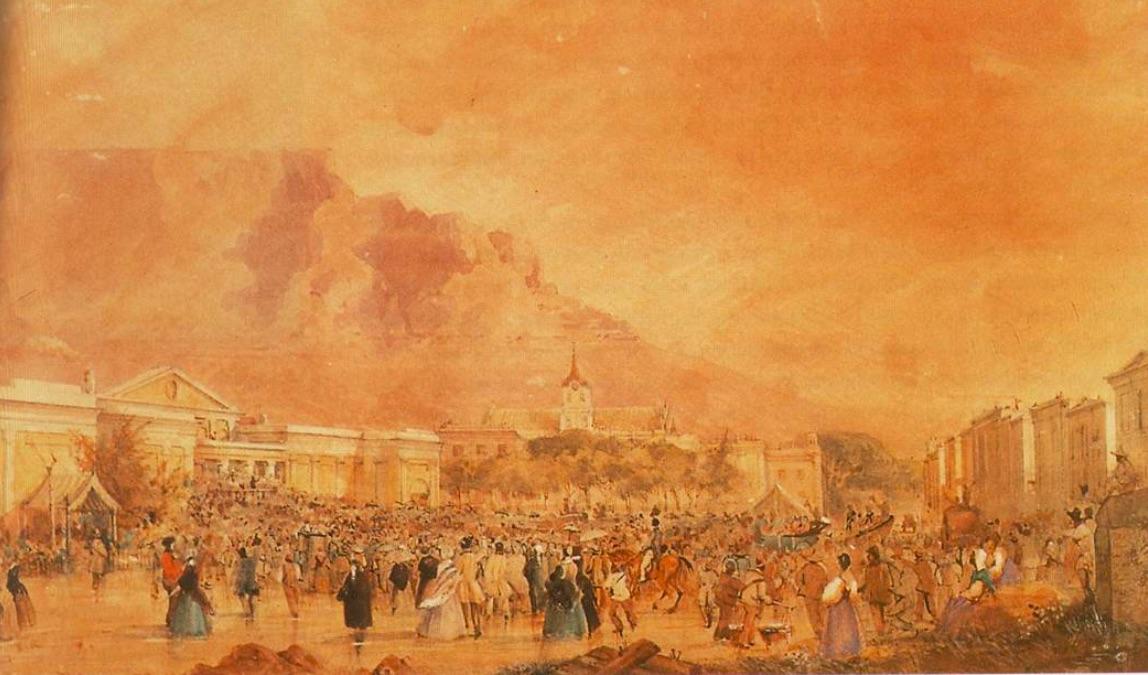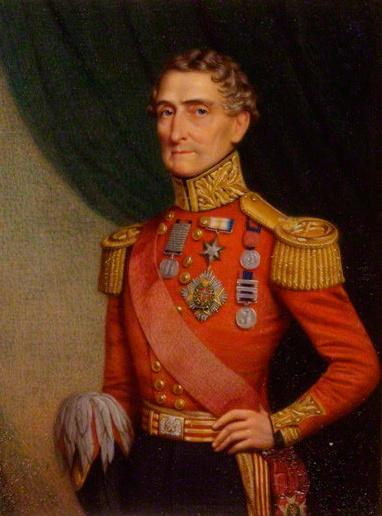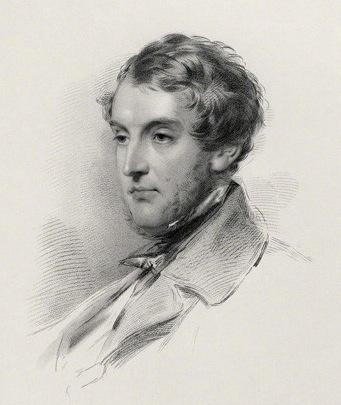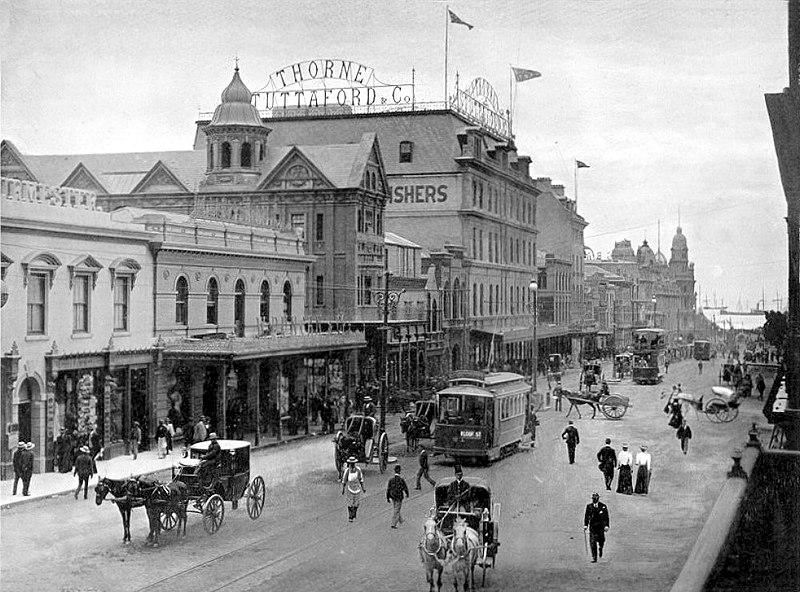
Disclaimer: Any views expressed by individuals and organisations are their own and do not in any way represent the views of The Heritage Portal. If you find any mistakes or historical inaccuracies, please contact the editor.
Lord Grey, the Colonial Secretary in London in November 1848 proposed to modify the penal transport provisions to include the Cape Colony as a destination for convicts. The British had stopped using Australia as their dumping ground for convicts. When news of this idea reached the Cape there was widespread outrage. Dutchmen and Englishmen, farmers and townsfolk, joined in utter condemnation of the plan. Strong views were expressed. Never would this be allowed. Within ten days some 5 000 residents, ‘one of the largest and most respectable public meetings ever held in Cape Town’ gathered to protest (see main image). A pledge was signed not to receive or employ any convicts. Petitions were widely signed and sent to Queen Victoria. An Anti-Convict Committee was formed of which John Fairbairn was elected secretary. John Fairbairn was a prominent and liberal citizen and founder of Old Mutual, amongst many other achievements. His involvement would lead to him getting beaten up and his house in Green Point wrecked by government thugs, such was the tension that arose.
The following year in September, the first convict ship, Neptune, sailed into Table Bay with 300 convicts aboard. The fury of the populace was uncontained. There would be a total ban on any contact with the ship. No produce, no food, no visitors, not even the sick would be landed. Neptune relocated to Simon’s Bay to avoid the bitter campaign. The ban on selling food to the Neptune was extended to all government institutions to prevent them feeding the convicts.
The British Governor of Cape Colony at the time was the genial and popular Sir Harry Smith. A genuinely nice man, this sudden crisis placed him in a quandary. He was after all the representative of the British government and crown, and was obliged to support the official line. His sentiments however were with the people.
Sir Harry Smith (Wikipedia)
Sir Harry Smith began to grow desperate. Robert Stanford was well known to him and owned a farm and fishing station close to Gansbaai. As Stanford was still a Captain in the British Army, albeit on half-pay, Smith sent the Attorney General to inform him that it was his duty to supply the government. Robert responded that he had already agreed to take part in the Colonist's embargo and couldn't provide the supplies Smith needed. Unfortunately the Governor had reached the end of his tether. The Attorney General informed Stanford that unless he sent supplies a state of Martial Law would be declared and troops sent to take what was needed. This put Stanford in a difficult position, he knew that neither side was likely to back down and if Smith carried through his threat, it would doubtless lead to bloodshed. Robert Stanford complied with the Governor’s order. It cost him dearly.
The boycott was a determined and vicious affair. Shops were closed, business suspended, Cape Town became a ghost town. The local government was ignored by the populace, they refused to deal with it. Stanford was immediately banned and boycotted. Word went far and wide; have nothing to do with him. Unable to sell his produce or buy any necessities, life at the Cape became very difficult for him. When a daughter fell sick no doctor would attend the child. She died. He and his family soon sailed for England.
And the Neptune? After 5 hard months in Simon’s Town the British government caved in, and she sailed for Van Diemen’s Land (Tasmania). The matter was finally laid in its grave and firmly cemented over in the British Parliament by an MP, Charles Adderley, a name remembered in Cape Town to this day.
Charles Adderley (Wikipedia)
Adderley Street in the 1890s (Wikipedia)
Sir Harry Smith lost his governorship. He lost popularity in the Cape by not fully supporting the boycott, and was regarded as unsound by London for not enthusiastically supporting the plan. He and his enchanting Spanish wife Juanita were recalled the following year.
About the author: Chris Taylor is a highly active member of the Muizenberg Historical Conservation Society.
References
- Cape Town The Making of a City, Worden, van Heyningen, Bickford-Smith. David Philip Publishers, Cape Town 1998.
- Eric A Walker, A History of Southern Africa, Longmans, 1962
- Website dealing with Captain Stanford's medals, https://spink.com/lot/21001000424
Comments will load below. If for any reason none appear click here for some troubleshooting tips. If you would like to post a comment and need instructions click here.



